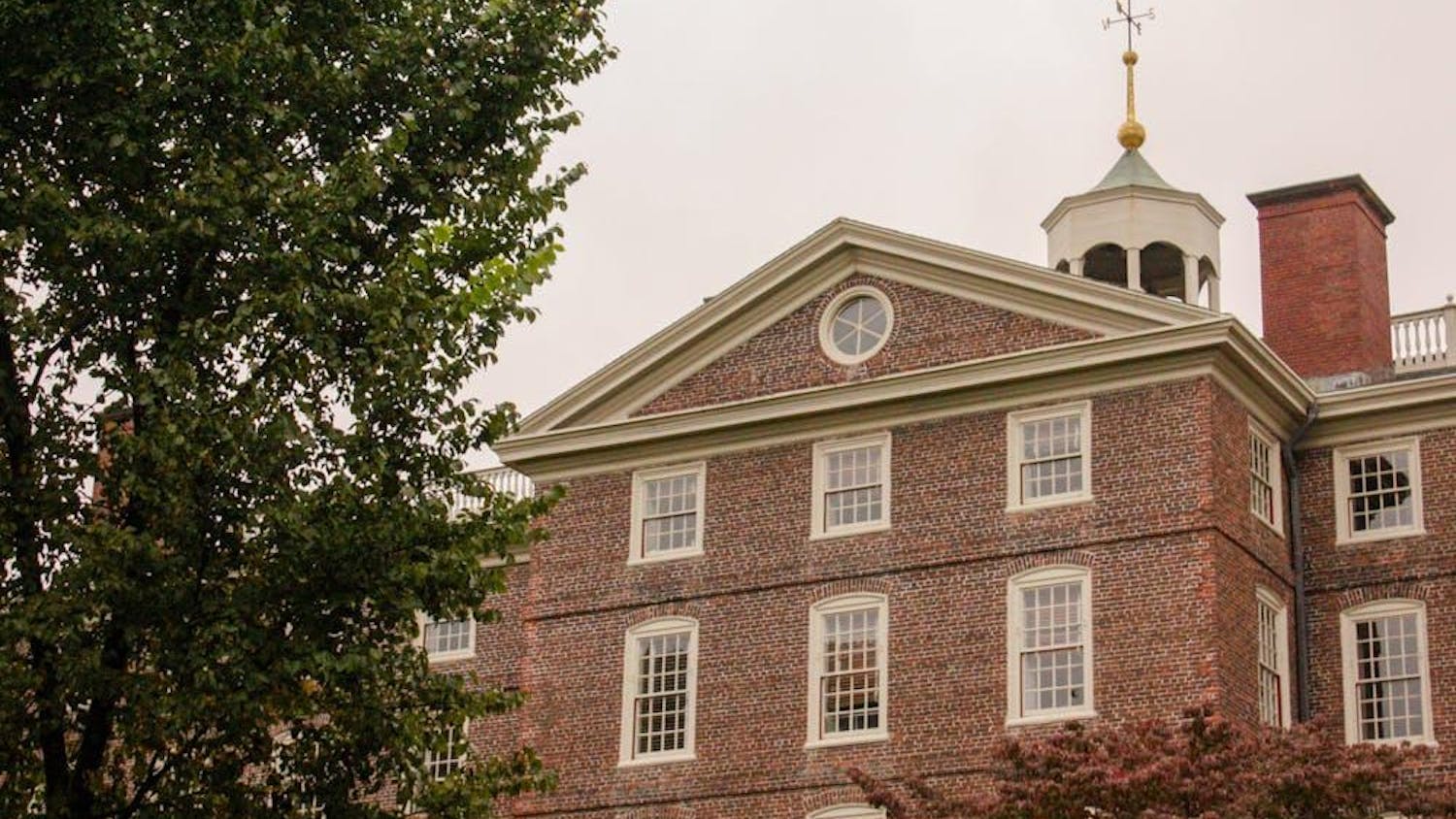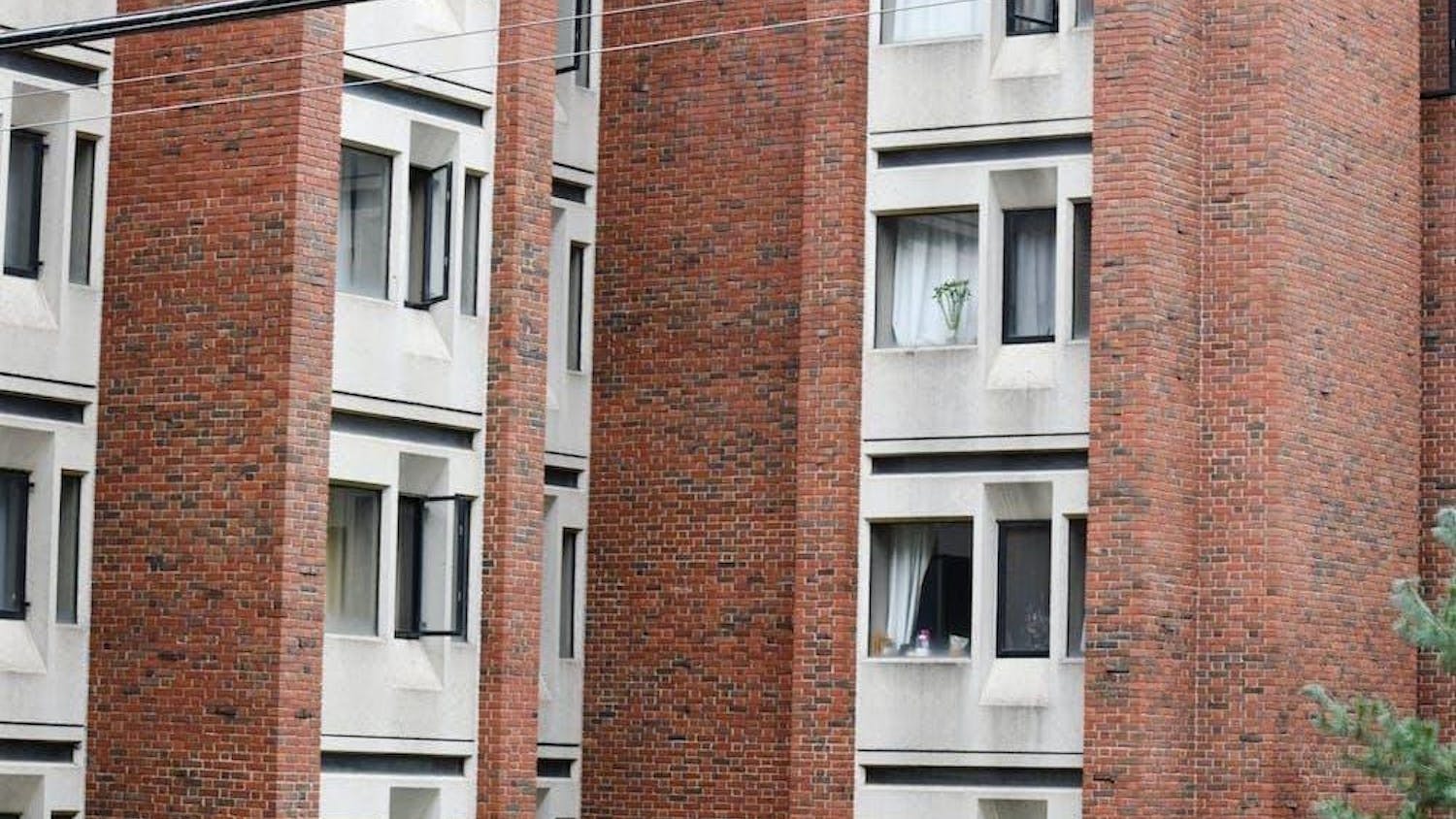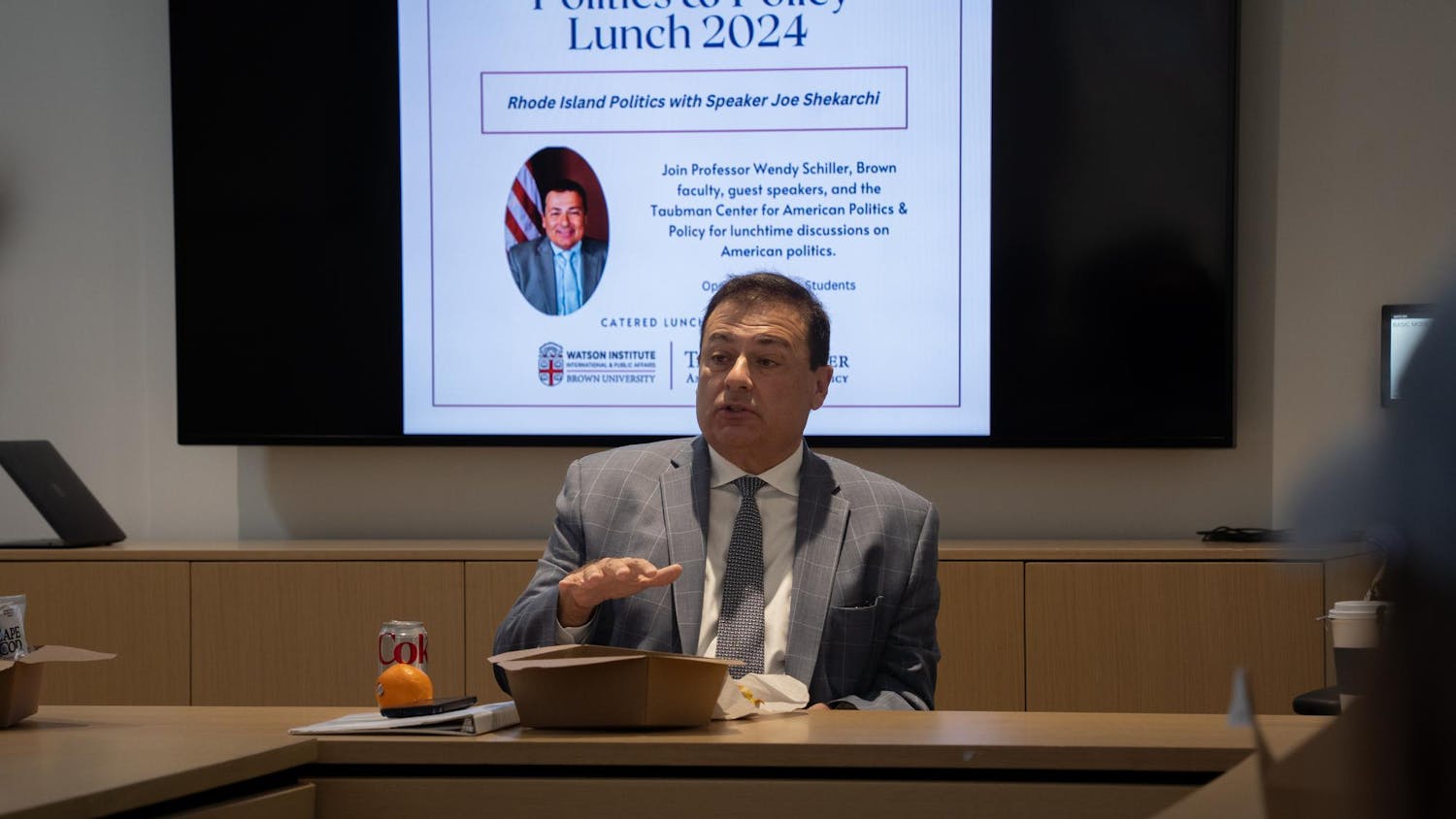The strategic planning committees are working on condensing their individual recommendations into a “single, integrated, strategic plan for Brown,” said Provost Mark Schlissel P’15 at a community forum on the strategic planning process Friday.
Schlissel and nine chairs of the six planning committees held the forum — which drew around 100 attendees, most of whom were faculty and staff members — to solicit feedback on the progress.
The planning process is coming to a close in the coming months, Schlissel said, adding that the committee chairs wanted to solicit ideas, advice and criticism from the audience.
Schlissel listed excellence, access and impact as the “overriding goals” of the committees, which include the Committees on Faculty Recruitment, Career Development and Retention, Doctoral Education, Educational Innovation, Online Teaching and Learning, Financial Aid and Reimagining the Brown Campus and Community.
Non-committee processes, including the proposed signature academic initiatives, will also be incorporated in the finalized plan, Schlissel said.
All six committees considered the importance of diversity and internationalization in the strategic planning process, Schlissel said. “We all recognize that you can’t achieve excellence without … diversity,” he added.
Participants in the strategic planning process will evaluate the affordability of the committees’ recommendations this summer, and the final, integrated plan that “sketches out ambitions for the decade ahead” will be presented to the Corporation this fall, Schlissel said.
Committee chairs were given five minutes to report on the progress of their committees and share their recommendations with forum attendees.
Recommendations from the Committee on Faculty Recruitment, Career Development and Retention include achieving greater faculty diversity, increasing support for faculty research and “continuing academic excellence of senior faculty,” said Dean of Medicine and Biological Sciences Edward Wing, co-chair of the committee.
One faculty member in attendance responded by saying he believed faculty recruitment was the key to improving academic departments, adding that the University should focus more on recruiting graduate students instead of being “hugely skewed” in favor of attracting undergraduates.
Increasing support and physical space for doctoral students are priority items for the Committee on Doctoral Education’s plan, said Dean of the Graduate School Peter Weber and Professor of Philosophy Bernard Reginster, who co-chair the committee.
“The Brown curriculum in the future can only be better than the Brown curriculum in the present tense,” said Dean of the College Katherine Bergeron, chair of the Committee on Educational Innovation. The committee wants to develop new teaching methods and build on the creation of TRI-Lab to expand community-based research, she said.
The committee’s recommendations include new ways to approach international education, including the creation of new courses that “have embedded opportunities for international study,” such as foreign trips during spring break or at the end of the semester, Bergeron said.
The Committee on Online Teaching and Learning wants to “help prepare students for the future that they face in the digital age,” said University Librarian Harriette Hemmasi, who chairs the committee. Recommendations include expanding the role of the Sheridan Center for Teaching and Learning, sharing courses with other universities and planning “mini courses” spanning less than a full semester and possibly focusing on current events, she added.
Hemmasi said her committee supports the creation of a long-term standing committee that would “review ongoing needs” of the University in online learning.
Ninety million dollars of the University budget, with the endowment covering about one-third of this total, goes toward financial aid, said Director of Financial Aid Jim Tilton, chair of the Committee on Financial Aid. Tilton said this percentage puts the University behind some of its peer institutions — like the Massachusetts Institute of Technology and Stanford University — that can use their endowments to cover as much as 80 percent of financial aid costs.
Tilton said the strategic planning process needs to balance long- and short-term goals, citing universal need-blind admission as unreachable in the near future. “In the list of priorities, we realized going need-blind is significant … but there are some immediate needs that we need to pay attention to,” he said.
Reducing the student summer earnings expectation, currently set at $3,000 per summer, could be a short-term goal that is easier to attain than a universal need-blind policy, Tilton said.
Executive Vice President for Planning and Policy Russell Carey ’91 MA’06, who chairs the Committee on Reimagining the Brown Campus and Community, said “the campus is working quite well,” leading committee members to only consider “modest and minor improvements overtime.”
But Carey said his committee discussed a lack of performance space for music groups on campus.
Director of Orchestras and Chamber Music Paul Phillips said the “musical situation ... has gotten significantly worse” in terms of securing physical space for orchestra practices.
Schlissel indicated members of the strategic planning process are aware of Phillips’ concern. “I’d be very surprised if the ultimate plan doesn’t involve performance space … the message is made, and it’s toward the top,” he said.
Carey’s committee received negative feedback in response to its initial recommendation to move different departments into the same building. Opponents expressed concerns about maintaining the “identity, character and quality of spaces,” Carey said.
“There may be some programs that benefit from shared spaces … but by no means is this something that fits all departments,” Carey said, adding the committee scaled back this recommendation in response to feedback.
Forum attendees requested committee chairs provide more information on physical spaces for facilitating social interaction among faculty members.
It is difficult for faculty members to find places to meet and build social networks with colleagues, said Professor of Cognitive, Linguistic and Psychological Sciences Bertram Malle. An on-campus wine bar could be one potential solution for this problem, he said.
“Whether to have a wine bar or not, I’m not sure, but having a space … that’s a start,” said Professor of Engineering Iris Bahar, who co-chairs the Committee on Reimagining the Brown Campus and Community.
Schlissel concluded the forum by emphasizing the University’s devotion to the strategic planning process. “The aggregate number of hours that have been spent on (strategic planning) this year by faculty, students, staff, the president, me, the deans … it’s the biggest thing we’ve been spending time on this year,” he said.
ADVERTISEMENT




